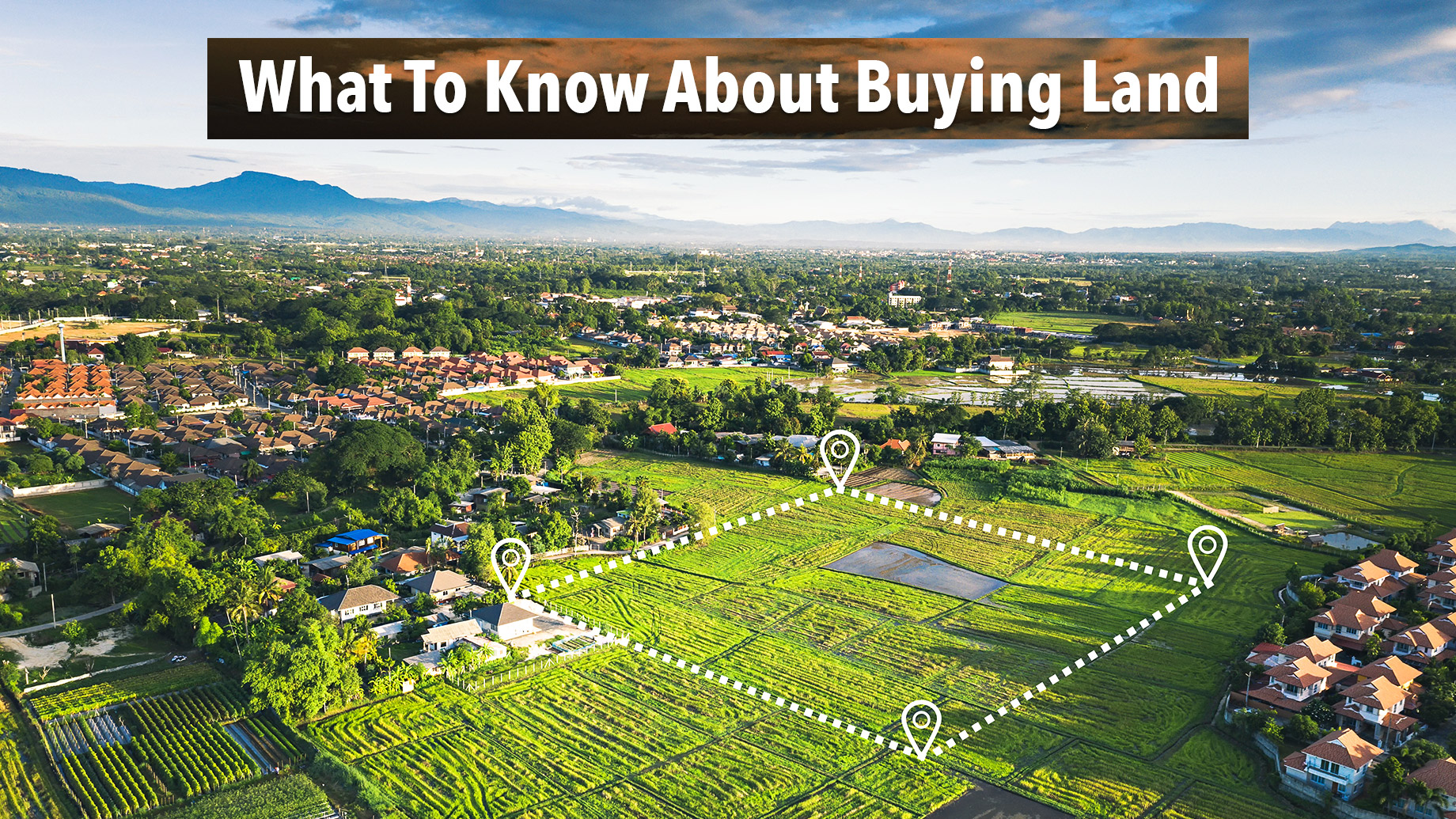
There are a lot of reasons that the idea of buying land can be appealing. If you want to buy land, it might be where you’re going to build your primary home, or maybe you’re going to build a second home. You might not even be exactly sure what you’re going to use it for, but you find a good deal, so you want to make a purchase. Buying land could be an investment of some kind for you as well.
Buying land is a big undertaking, though. The process can be quite a bit more complex than building a structure that’s already there.
When it comes to finding land for sale, you can do it yourself, but sometimes it’s best to work with an agent who understands this particular market. What’s good about working with someone who specializes in selling land is that they often know of things that are available or could be but aren’t technically listed for sale. If your price is right, you might be able to find amazing off-market opportunities.
The following are considerations to remember when purchasing land with those things in mind.
Choosing Land
You have to consider technicalities and local building restrictions and regulations before purchasing a property. Zoning rules layout restrictions about things like the size of buildings and the types of businesses or properties that can be built.
If you want to build a certain type of home or an investment property, the first thing you should do before falling in love with anything is checking on the local zoning laws and restrictions.
You also have to remember that the soil on the land can potentially prevent you from building, getting electricity and natural gas, or digging a well.
Other things you have to consider when you’re buying vacant land that you might not have a full understanding of include:
- Could the elevation of the land become an obstacle?
- Are there environmental problems that could be an obstacle or that could require you to solve them?
- Are there any liens on the land?
Again, when you’re working with a real estate professional, they can walk you through the whole process. If you aren’t going to use someone who specializes in helping people with land transactions, you might think about finding a real estate attorney.
Before you find a lender, you’ll also need to have a professional survey the land. This will be someone who assesses how accessible the land is, they’ll find out whether anyone already has a right to use it, and they can determine the dimensions.
What’s It Like To Get A Land Mortgage?
If at all possible, most professionals recommend that you buy land in cash when possible. If you can’t buy the land with cash outright, you might need a land loan.
The specific type of land loan you need depends on the type of land you will buy.
There’s financing that’s available for raw land. There are also different types of financing for land that’s been somewhat developed with things like installing sewer lines.
If you’re getting a loan for improved land, it might be classified as a commercial property loan. In these instances, you could be required to make a down payment as high as 50%. Other lenders will let buyers put less down.
If you’re getting a mortgage for raw land, it will come with a high-interest rate.
The lender will look at typical things to approve a loan, like your credit score and background, but may also want to learn more about how you plan to use the land.
If you find an improved property, you’re more likely to get approved for a loan.
If you can’t get a loan directly from a lender or traditional financial institutions, the owner might offer financial assistance. There’s also something called a Section 502 direct loan. The Department of Agriculture administers this program, and it’s available for some low-income people providing them with the chance to buy land in a rural area where they plan to buy a home.
You have to remember that if you’re buying land to build a home on it, you’re also going to need a construction loan.
Making An Offer
The process to make an offer on a piece of land is similar to buying a home that’s already been built.
If you find land you want to purchase, you make a written offer and go to the seller with the terms. You may try to negotiate the price of the land down, but if you want to do that, you should come in with research and data that shows why you’re offering to pay that particular price.
You might request that a seller pay your closing costs or some of them, and your offer may include contingencies that would lead you to leave the deal if necessary.
Once a seller accepts your offer and those details are worked on, you’ll close on purchasing the land. That means signing a land purchase agreement stipulating what you’re willing to pay and the amount of money you’re putting down. The seller of the land also signs this.
Within a land, the contract will be everything you and the seller agree to about the land purchase.
You’ll also review any real estate forms specific to the state where you’re making the purchase and a closing statement with the costs from the sale. There will be a deed transferring the title for the land from the owner to you.
Buying land will be more complex than buying a home that’s already built. For example, it’s very easy when you buy land for the first time to take access to sewers, electricity, and water for granted. They’re not always a given on vacant land, and you may have to spend a lot to create an infrastructure when you buy vacant property.
That’s why working with professionals who can guide you through the process will be the best way to buy land.